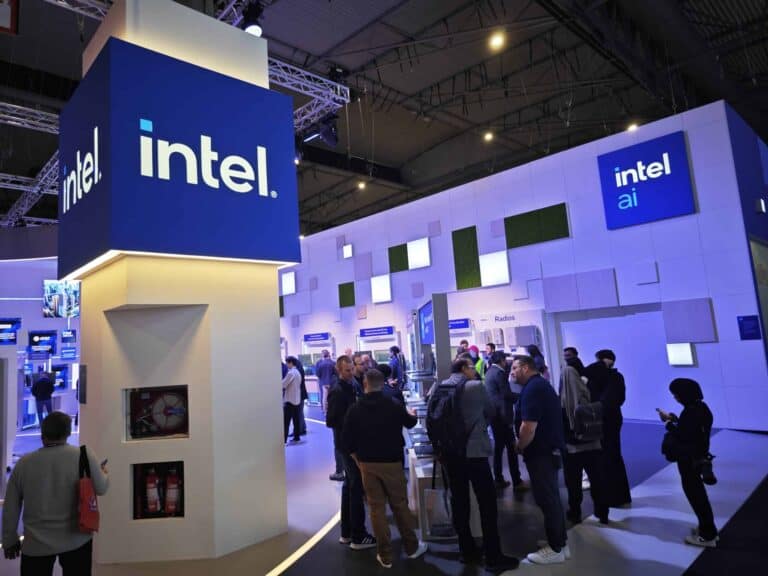The US government is investing $8.9 billion (€7.6 billion) in Intel through a conversion of federal subsidies into equity capital. CFO David Zinsner confirms that the deal is intended to prevent Intel from selling its loss-making foundry division.
During a Deutsche Bank conference last Thursday, Zinsner revealed the strategic motivation behind the recent government investment, writes FT. The Trump administration has acquired a 10 percent stake in Intel by converting subsidy funds from the CHIPS Act into shares. The deal includes a protection mechanism: a five-year warrant that allows the government to take another 5 percent if Intel reduces its share in the foundry business below 51 percent.
Strategic considerations
The direct government stake should also give potential customers a different perspective on Intel. So far, major players such as Nvidia, Apple, and Qualcomm have not placed orders with Intel Foundry. They have doubts about Intel’s manufacturing processes compared to the market leader TSMC.
You can see it as “a little bit of friction to keep us from moving in a direction that I think ultimately the government would prefer we not move to,” Zinsner said of the warrant construction. Intel’s foundry business is unprofitable and lost $13 billion last year due to its struggle with rival TSMC and the lack of external customers.
Foundry sale off the table
The deal ties Intel’s hands at a crucial moment. Analysts at Citi and former Intel executives had called for the sale of the foundry division. Qualcomm also showed interest in a possible acquisition. The resignation of CEO Pat Gelsinger in December only reinforced these expectations.
“I don’t think there’s a high likelihood that we would take our stake below the 50 per cent,” Zinsner said. He expects the warrant to ultimately expire unexercised, but acknowledges that it is an effective brake on potential sales.
Coincidence or coordination?
New CEO Lip-Bu Tan sees the government support as welcome financing. “This was a great quarter for us in terms of cash raise,” Zinsner said. Intel has already received $5.7 billion of the investment as of Wednesday. The remaining $3.2 billion depends on achieving milestones within a Defense program.
Intel also sold $1 billion worth of Mobileye shares and is about to sell 51 percent of its chip division, Altera, to private equity firm Silver Lake. SoftBank also invested $2 billion in Intel the same week. Zinsner denied coordination with the government, despite SoftBank CEO Masayoshi Son’s close ties to Trump. It was coincidence that it all fell in the same week.
The construction guarantees Intel the necessary funds without dependence on capital markets. Given the uncertainty surrounding CHIPS Act milestones for manufacturing grants, this was crucial, according to Zinsner, it “effectively guaranteed that we’d get the cash.”
